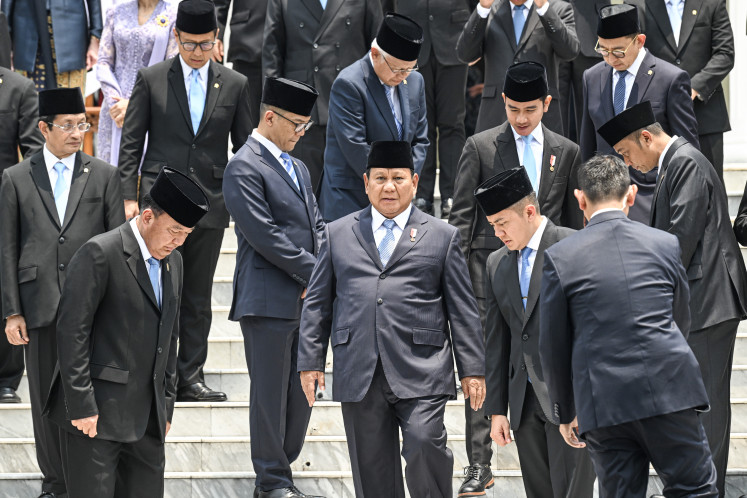Popular Reads
Top Results
Can't find what you're looking for?
View all search resultsPopular Reads
Top Results
Can't find what you're looking for?
View all search resultsBangka Belitung to rejuvenate pepper production
Change text size
Gift Premium Articles
to Anyone
B
angka Belitung Deputy Governor Abdul Fatah said his administration would introduce a more effective and productive cultivation method for pepper, the commodity that spurred the spice trade during the Dutch colonial era.
He explained that the new method would replace the wooden supports that were currently being used with kapok trees, which would boost the productivity and life span of black pepper plants.
Pepper plants are a type of climbing vine, and require a support structure or tree for optimum growth and fruit development.
“A kapok tree can grow up to 13 meters and we can pick [the peppercorns] up to 8 meters using ladders,” he said during a visit to The Jakarta Post office on Thursday.
“With the new method, a pepper plant can produce up to 3 kilograms of peppercorns per year, compared to only 6 ounces if we use the traditional method, and it can live for 10 to 15 years from only three years currently,” he said. Abdul added that in using support trees, people would stop cutting trees from our remaining forests, as they no longer needed the wood to support pepper plants.
The Bangka Belitung provincial administration and the Legislative Council are currently deliberating the budget for the introduction of the new cultivation method, particularly in providing pepper growers with kapok seeds.
Bangka Belitung was once known for its abundance of the spice during the Dutch colonial era before farmers switched to tin mining. Pepper plantations in the area are still cultivated by individuals (bbn)










